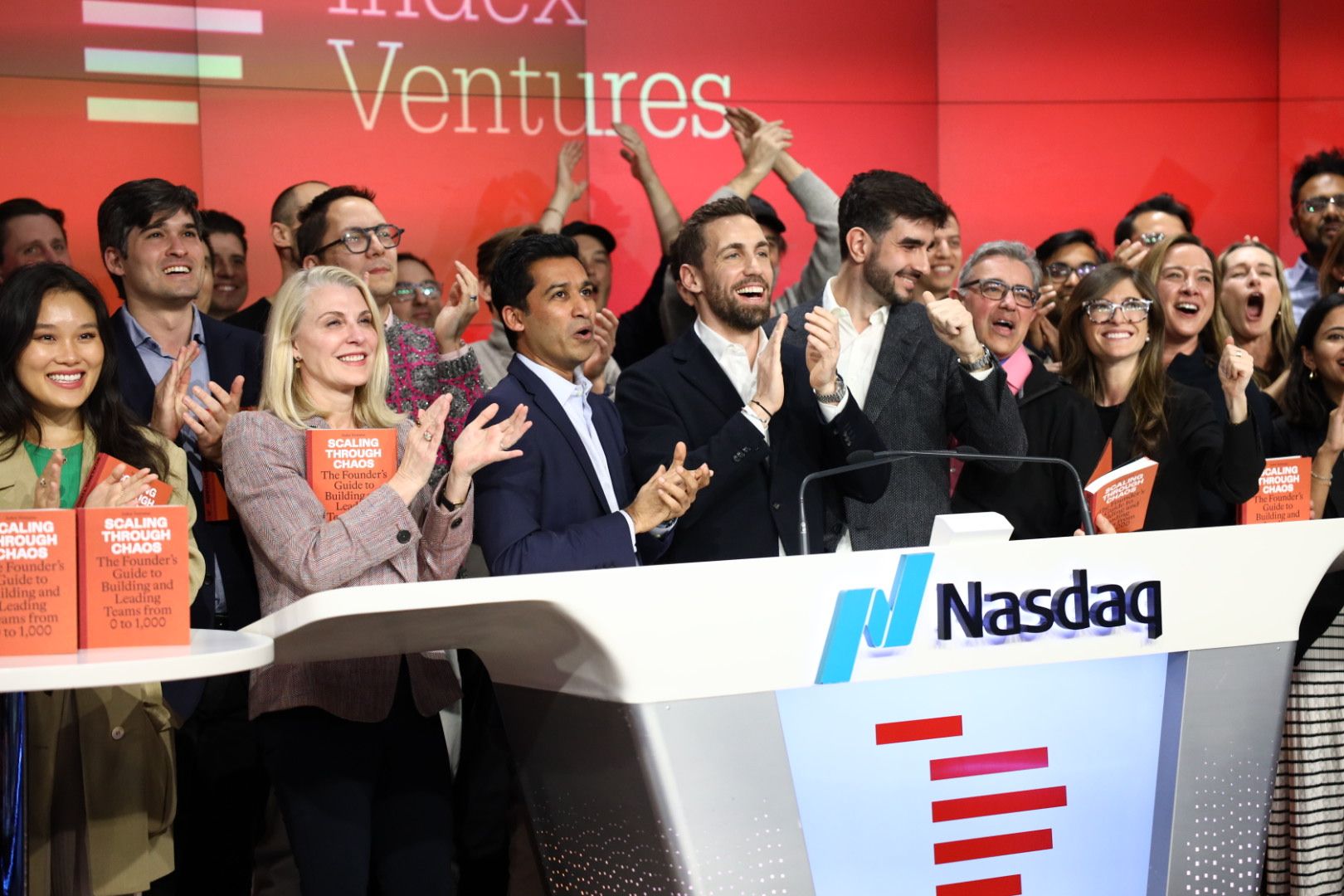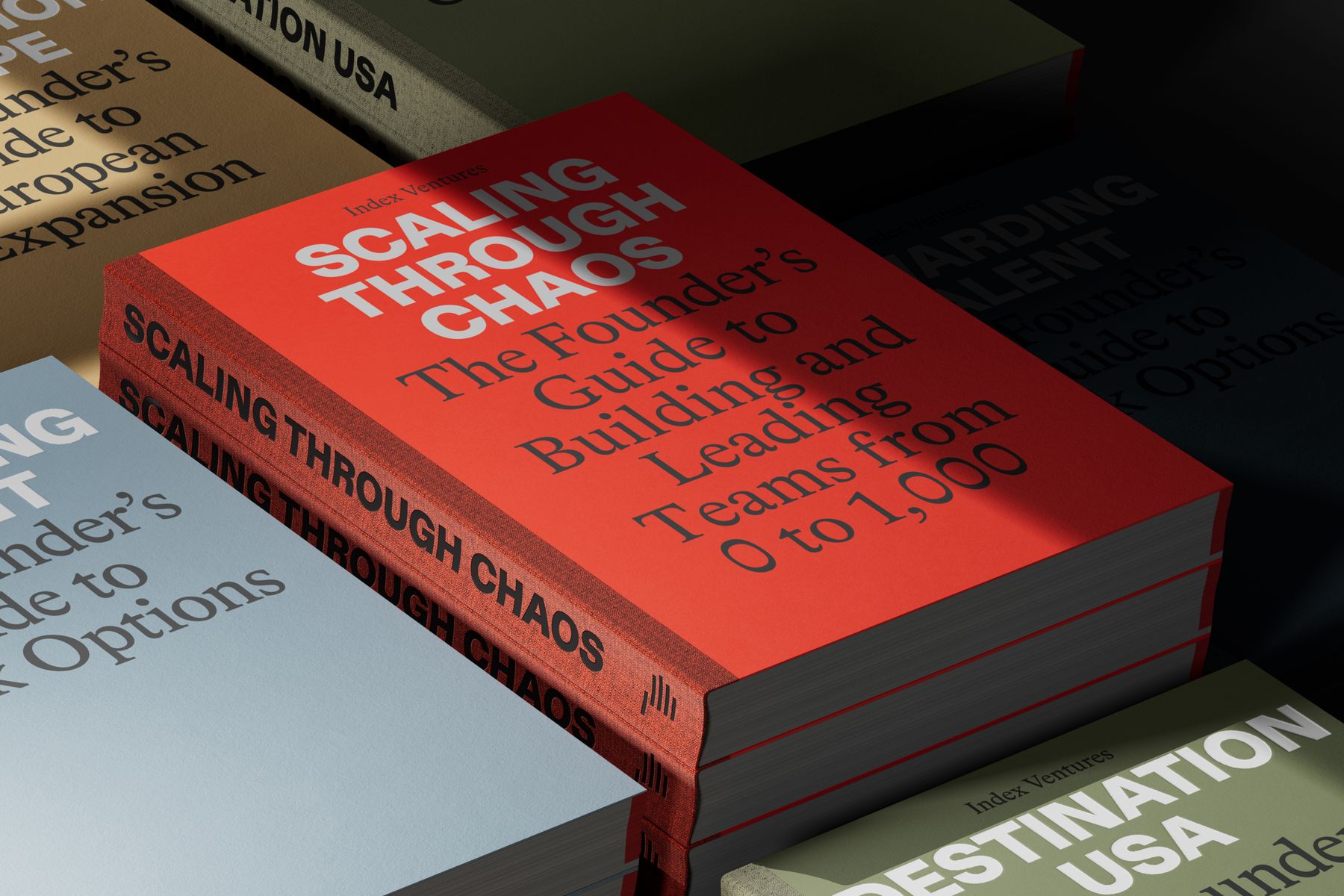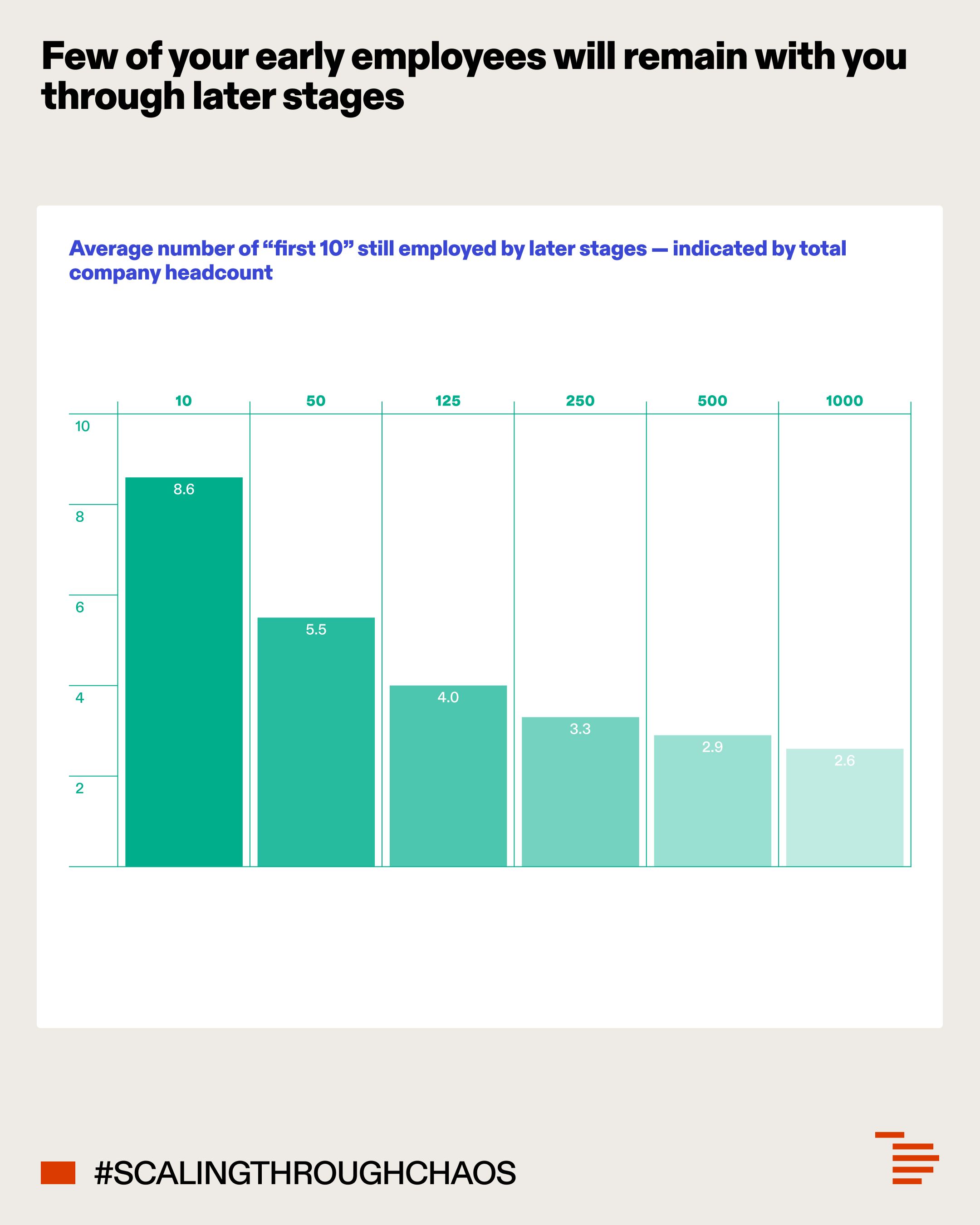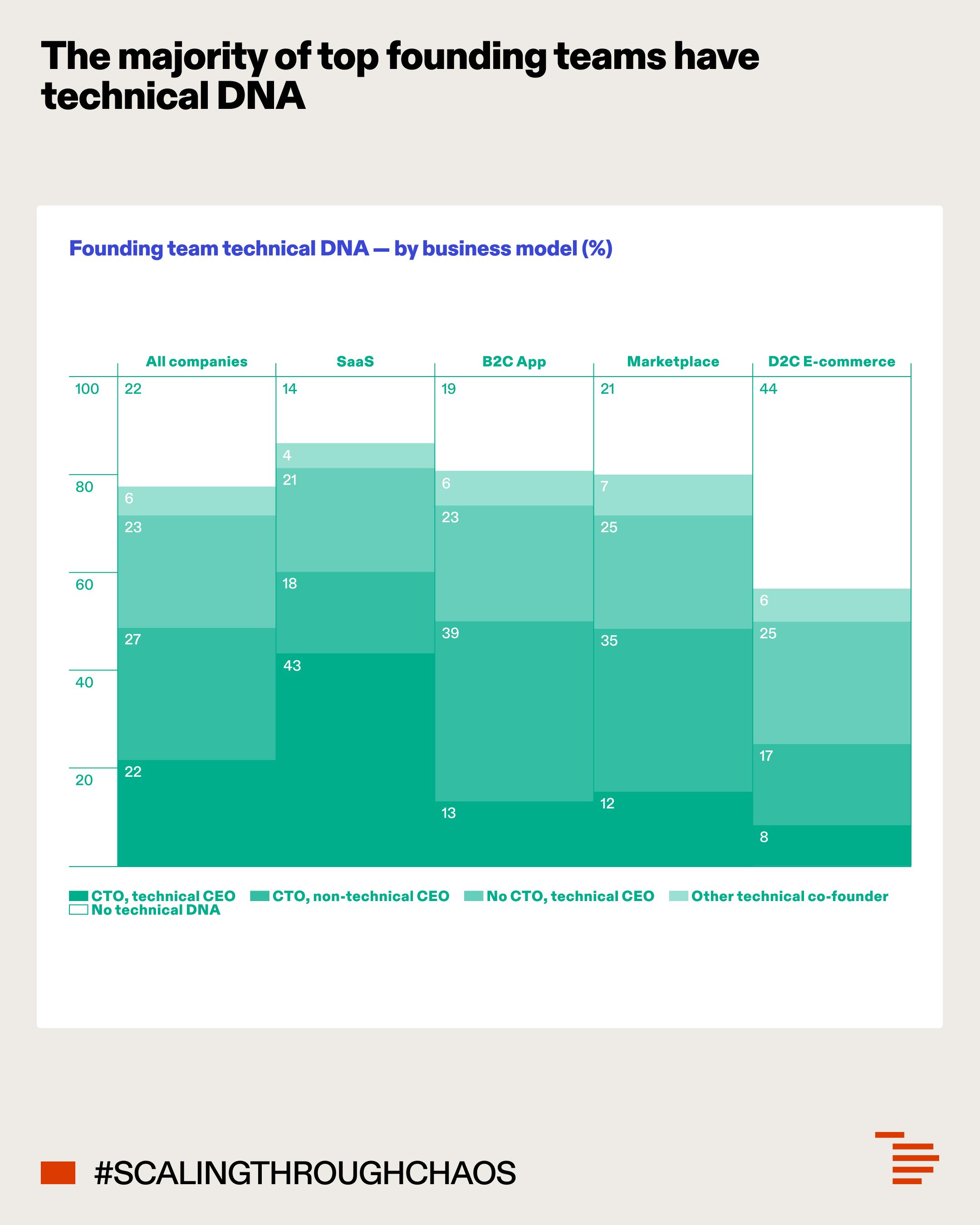Startups on the brink: why a boom in innovation is around the corner

Index Ventures launches its latest book Scaling Through Chaos at the Nasdaq to equip and inspire the next generation of founders

Index has released a series of books and apps for entrepreneurs, now available within Index Press
It’s never easy to be a founder, and today it can feel harder than ever. Competition for capital is fierce, and entrepreneurs are being asked to do more with less. But companies aren’t simply at the mercy of the business cycle. They can channel and change the pressures they must adapt to – and even to turn those same forces into catalysts for growth.
For the best entrepreneurs, the pressures of survival can be accelerants and advantages. When you look beneath the superficial gloom, what you see is that the global startup ecosystem stands at the brink of a once-in-a-generation technological tipping point.
Three factors are converging that give founders more power than ever before to build outlier companies. For one, startups now benefit from decades of accumulated wisdom on critical topics like hiring, growth, and team building. Secondly, a global pool of diverse experts and mentors has accelerated feedback loops and talent development. And finally, powerful new technologies have lowered barriers to entry while enabling small teams to achieve outsized impacts.
Building the corpus of knowledge about scaling startups
Let's start with knowledge. In our recently published book Scaling Through Chaos, Index Ventures created and analyzed a dataset of over 200,000 founder and employee career profiles over 15 years from 200 of the most successful tech companies ever built – including the likes of Airbnb, Figma and Stripe. This is the most extensive research ever conducted into how venture-funded startups build their teams, and many surprising findings emerged.
Index Ventures has produced a series of books and apps on the topic of entrepreneurship. The latest instalment, Scaling Through Chaos, was released in March 2024.
One key insight is that a degree of chaos is a feature, not a bug, of companies in high-growth. Our data shows that successful startups tend to double their headcount every year after finding product-market fit, which typically corresponds to 125-1,000 headcount. This means that, at any one time, half of all employees will have been at the company for under one year, which in turn generates massive organizational stress. It would be futile to try and stamp that out; what you want is to find a temporary equilibrium that lets you surf the edge of chaos, with just enough structure to stay upright.
A second insight is that it’s important to avoid over-indexing on loyalty, as the needs of your business change with scale. This begins to bite most sharply in the ‘messy middle’, above 125 headcount, as you navigate the transition from being a scrappy start-up staffed with generalists to one with more structure and specialization. As a consequence, you can expect around five to six of your 10 early hires to remain by the 50 headcount threshold, dropping to three by 250, and just two to three if you cross the 1,000 employee mark.

What all this shows is that founders have spent the past three decades experimenting, iterating and evolving best practices about hiring, scaling and executing. But with the richness of the information now at our disposal, entrepreneurs have encyclopedic playbooks for everything from finding product-market fit to growth-hacking to structuring high-performing teams. Founders no longer have to figure out first principles alone, but can draw on real evidence. Rather than reinventing every wheel, they can focus on the 20% that’s unique to their startup.
The compounding expertise of millions of builders
Over 150,000 VC-backed startups are estimated to be operating worldwide, according to data from Dealroom’s Startup Demographics report – with around 200 of them reaching $1 billion valuation every year. Ex-operators, entrepreneurs-turned-angels and venture capitalists no longer cluster solely on the West Coast of the US, but can be found in hubs in most major cities worldwide, and come from increasingly varied backgrounds. In a sign of the spread of innovation, Index alone has invested in over 100 cities. The compounding expertise of millions more experienced builders creates ever-faster feedback loops, kick-starts a talent and business flywheel effect, and leads to more inclusive and inventive startup ecosystems.
A technological tipping point for entrepreneurship
There’s a lot of noise about AI representing a unique platform shift. But in some way that frame is the tree that obscures the forest from view. Rather, we’re at a technological tipping point in which cloud, mobile, chip manufacture and AI are all coming together to supercharge one another’s adoption – reducing barriers to the birth of new businesses, accelerating company growth and opening up whole new industries to the forces of innovation. According to our analysis, it used to take more than eight years to grow a business from zero to 500 employees. Now it takes only five, and we expect the speed of scaling to accelerate even more.
Meanwhile, global distribution infrastructure has also been commoditized, so creators can focus more on unique solutions rather than technical plumbing. Democratized access to powerful tools, highly scalable infrastructure and APIs allows small teams to punch above their weight in ways unimaginable even 10 years ago. Yet despite these shifts, it’s never been more important to have technical DNA in your early team, to help you to get an edge and seize the opportunities: our analysis suggests that nearly 80% of successful companies had either a founding CTO or a technical CEO.

We now stand at an inflection point where knowledge, people and technology are converging to have compounding, exponential effects, and reshape the entrepreneurial ecosystem. The message is clear: the ingredients for success have never been more abundant, and it’s up to bold innovators to combine them in creative ways. Yes, it’s almost impossible to single-handedly change the wider economy. But you can choose whether to let yourself be swept away by the current – or to channel the turbulence, and prosper.
Published — April 16, 2024


